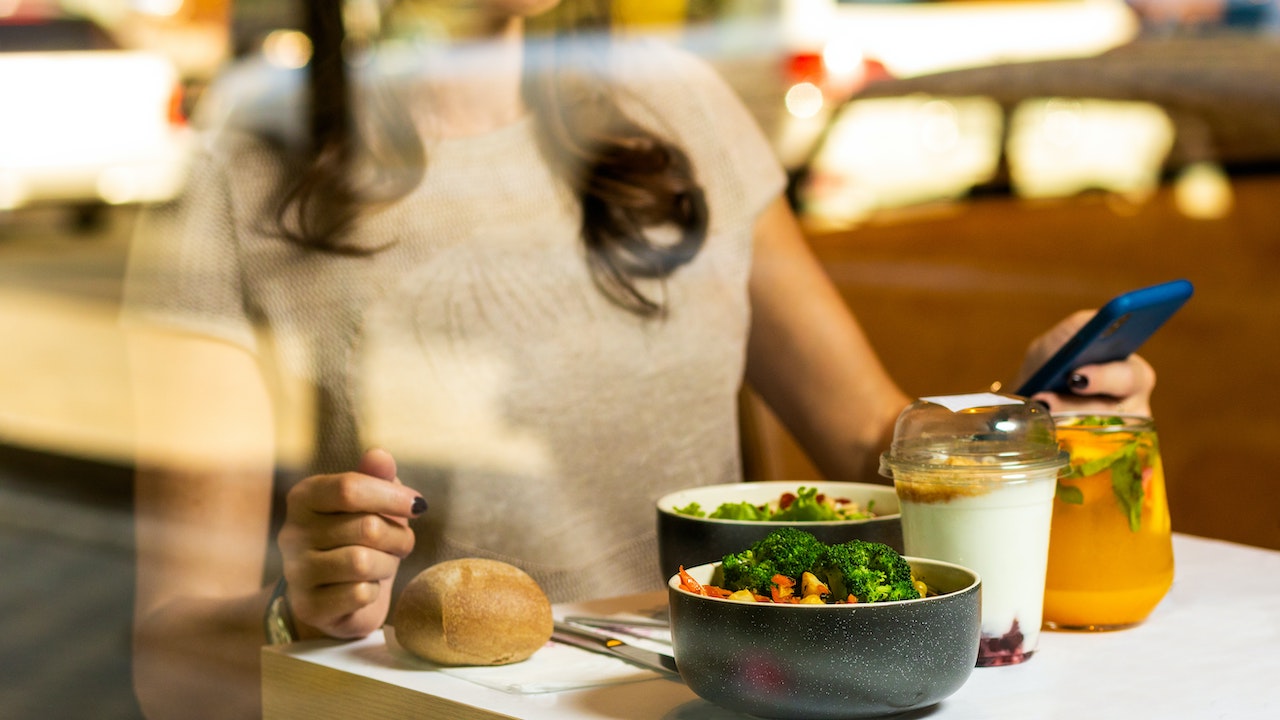Written by Diana Licalzi, MS, RD, CDE
How much sugar do you think you eat in a day? Maybe you indulge in some sweets every once in a while but what about the foods you eat on a daily basis?

The American Heart Association recommends women should consume no more than 25g of added sugar a day (6 tsp) and 36g for men (9 tsp). This refers to added sugar — sugar that has been added to foods and not the sugar that's naturally occurring (i.e. like the naturally occurring sugar found in fruit).
In this article, we will break down the ingredients in five seemingly healthy foods. You may be surprised by the sugar content.
1. Fat-Free Salad Dressing
It seems logical that something labeled as fat-free would also mean sugar-free, right? Guess again. The second ingredient in this sugar, and just 2 tbsp of this dressing contains 5g of added sugar.


Healthier options: make your own! Mix a little olive oil, vinegar, and dried spices. Or, one of my go-to dressings is balsamic vinegar, hummus, and lemon juice for a creamier option.
2. Bread
A bread labeled as "Healthy Choice" must be a healthy choice! Nope. High fructose corn syrup, another name for sugar, has been added to this bread contributing to 3 grams of sugar for one slice, and 6g if you were to make a sandwich.


Healthier options: Ezekiel 4:9 Sprouted Grain, Alvarado St. Bakery, Alpine Valley Natural Whole Grain Breads
3. Nut Butters
Nut butters are already a calorically dense food due to their healthy fat content so why the need to add anything else to this food? Nut butters should contain one or two ingredients and that's the name of the nut, and perhaps salt. Not sugar. This nut butter contains 1.5 g of sugar for one tbsp and who really stops eating nut butter at just one tablespoon?


Healthier options: Woodstock Foods, Artisana, Organics, Trader Joes, or Whole Foods 360 brand.
4. Condiments
Don't be fooled by the organic labels. Yes, I believe organic is better but organic sugar is still sugar and will be stored as fat if it goes unused in your body. 4 g of sugar for 1 tbsp.


Healthier option: pick condiments without any added sugars, or find a recipe to make your own!
5. Yogurt
Beware of the added fruit in yogurt - both plant-based and dairy versions! Many companies add fruit to yogurt that is sweetened with sugar. Plant-based yogurt is such a healthy food so there’s no need for it to be filled with added sugar. This dairy yogurt contains 16g of added sugar for 1 container.


Healthier option: buy plain yogurt and add your own sweetener. Ways in which you can sweeten your yogurt, include adding protein powder, nut butter, berries, and/or vanilla extract.
Now let's create a sample day with the items from above.
1 yogurt for breakfast - 16 g
2 slices of bread + 1 tbsp of peanut butter for a PB&J sandwich - 7.5 g
2 tbsp of salad dressing at dinner - 5 g
____
TOTAL: 28.5g
To reiterate, the recommended maximum amount of added sugar is 25g for women and 36g for men.
All this sugar piles up when it goes unused in our body — it gets stored as fat in our stomach, as fat in our arteries, as fat floating around in our blood. If these levels aren’t controlled, it can lead to a host of problems including obesity, diabetes, and heart disease.
So how do we keep our sugar intake in check? By reading the ingredient lists on food products, and making a conscious effort to avoid it.
Diana is a nationally recognized Registered Dietitian and Certified Diabetes Care and Education Specialist (CDCES), and holds a Master’s degree in Nutrition Science and Policy from the Tufts Friedman School of Nutrition. She received her education and dietetics training from Villanova University, Tufts University, and UC San Diego Health. Diana has over 8 years of experience working in the field of type 2 diabetes.


Leave a Comment